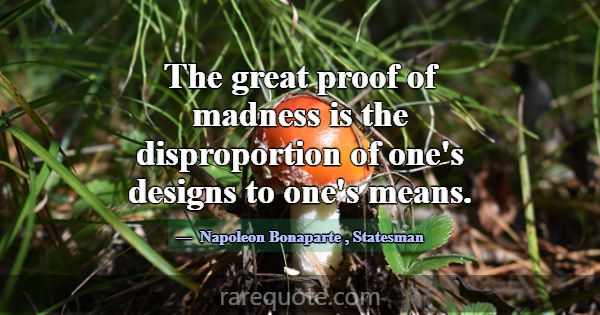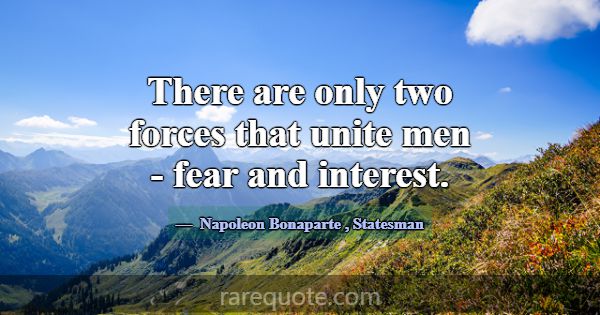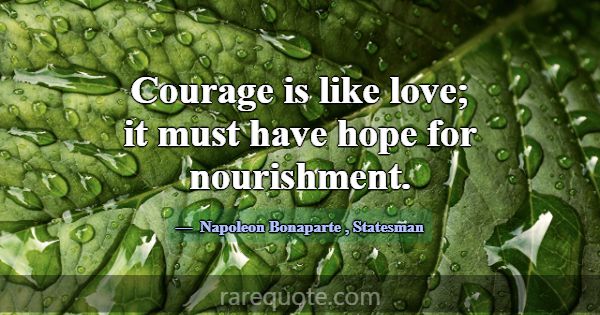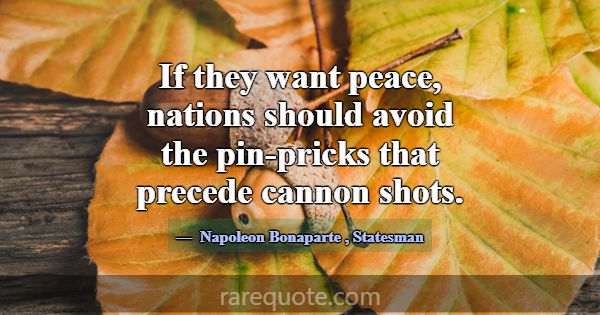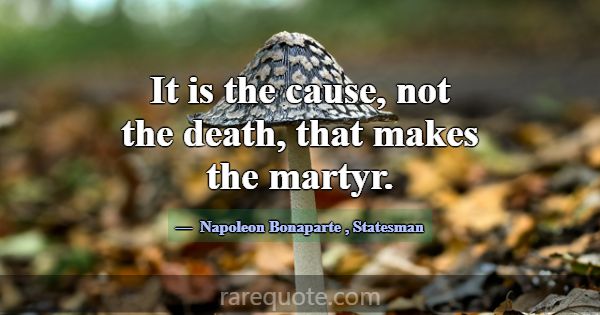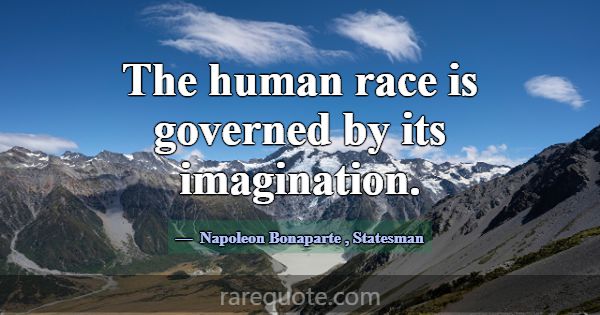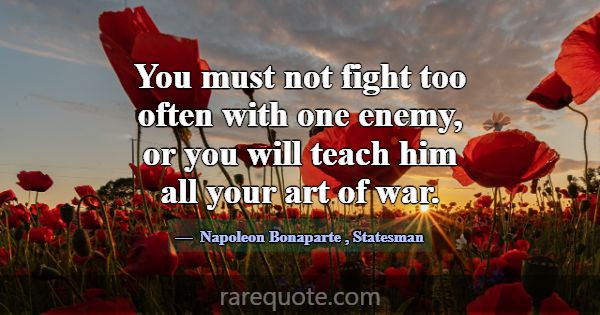Napoleon Bonaparte Quotes
This quote suggests that a sign of madness or irrationality is when a person's aspirations or ambitions greatly exceed their actual capabilities or resources. It warns against pursuing unrealistic goals that are far beyond one's reach, highlighting the importance of being pragmatic and grounded in one's pursuits.
This quote emphasizes the importance of sustenance and logistics in military operations. It implies that the success and effectiveness of an army depend on its ability to maintain the physical well-being and provisions of its soldiers.
This quote highlights the fundamental importance of water, air, and cleanliness for maintaining good health. It implies that these elements are essential components of a personal "pharmacy," suggesting that they form the basis of promoting and preserving one's well-being. It underscores the significance of basic necessities for health.
This quote suggests that fear and self-interest are primary motivators that bring men together and shape their behaviors or decisions. It implies that shared fears or common interests can serve as powerful forces for unifying individuals and influencing their actions.
The quote draws a parallel between courage and love, highlighting that both require hope as nourishment. It suggests that hope provides the motivation and sustenance for acts of courage, emphasizing the interconnectedness of these qualities.
This quote advocates for diplomatic and peaceful approaches in international relations. It suggests that nations can prevent conflicts and wars by addressing underlying grievances, resolving disputes through dialogue, and avoiding provocative actions that escalate tensions. It conveys the idea that proactive measures are essential to maintain peace among nations.
This quote questions the nature and reliability of history, suggesting that it is essentially a narrative or story that has been collectively accepted or agreed upon. It implies a critical view of historical accounts as potentially subjective or constructed, acknowledging the role of interpretation and consensus in shaping historical understanding.
This quote asserts that men, like all individuals, are primarily motivated by two factors: fear, which can drive them to act or comply, and self-interest, which can influence their decisions and actions.
Popular Topic
- Age
- Alone
- Amazing
- Anger
- Anniversary
- Architecture
- Art
- Attitude
- Beauty
- Best
- Birthday
- Brainy
- Business
- Car
- Chance
- Change
- Christmas
- Communication
- Computers
- Cool
- Courage
- Dad
- Dating
- Death
- Design
- Diet
- Dreams
- Easter
- Education
- Environmental
- Equality
- Experience
- Failure
- Faith
- Family
- Famous
- Father's Day
- Fear
- Finance
- Fitness
- Food
- Forgiveness
- Freedom
- Friendship
- Funny
- Future
- Gardening
- God
- Good
- Government
- Graduation
- Great
- Happiness
- Health
- History
- Home
- Hope
- Humor
- Imagination
- Independence
- Inspirational
- Intelligence
- Jealousy
- Knowledge
- Leadership
- Learning
- Legal
- Life
- Love
- Marriage
- Medical
- Memorial Day
- Men
- Mom
- Money
- Morning
- Mother's Day
- Motivational
- Movies
- Moving On
- Music
- Nature
- New Year's
- Parenting
- Patience
- Patriotism
- Peace
- Pet
- Poetry
- Politics
- Positive
- Power
- Relationship
- Religion
- Respect
- Romantic
- Sad
- Saint Patrick's Day
- Science
- Smile
- Society
- Space
- Sports
- Strength
- Success
- Sympathy
- Teacher
- Technology
- Teen
- Thankful
- Thanksgiving
- Time
- Travel
- Trust
- Truth
- Valentine's Day
- Veterans Day
- War
- Wedding
- Wisdom
- Women
- Work



